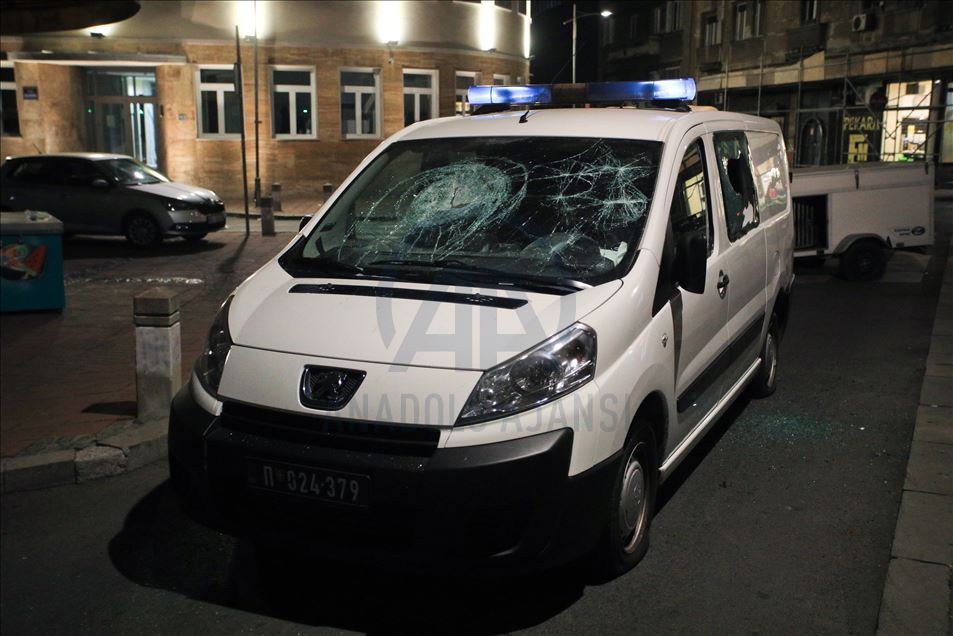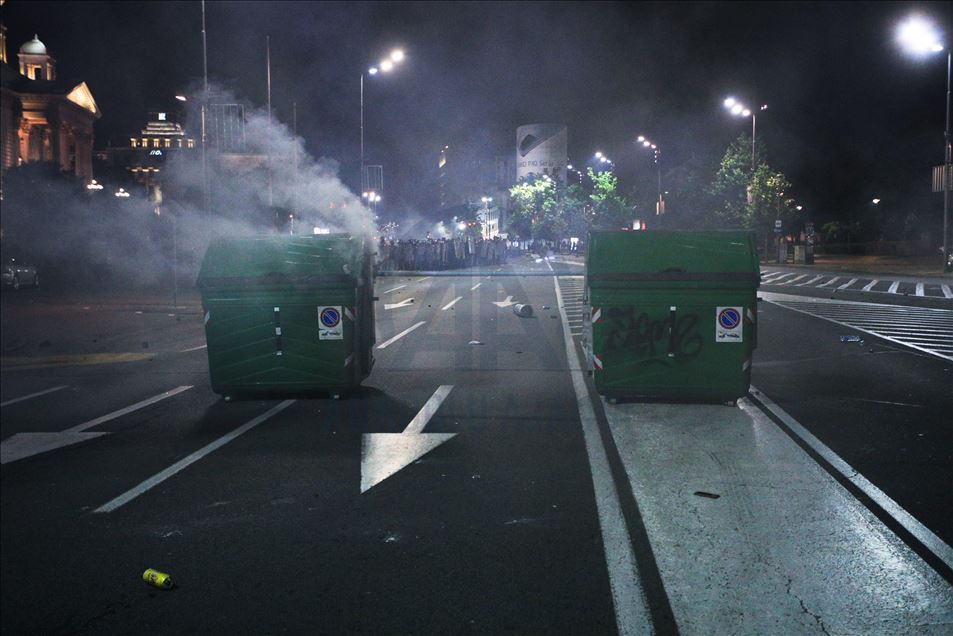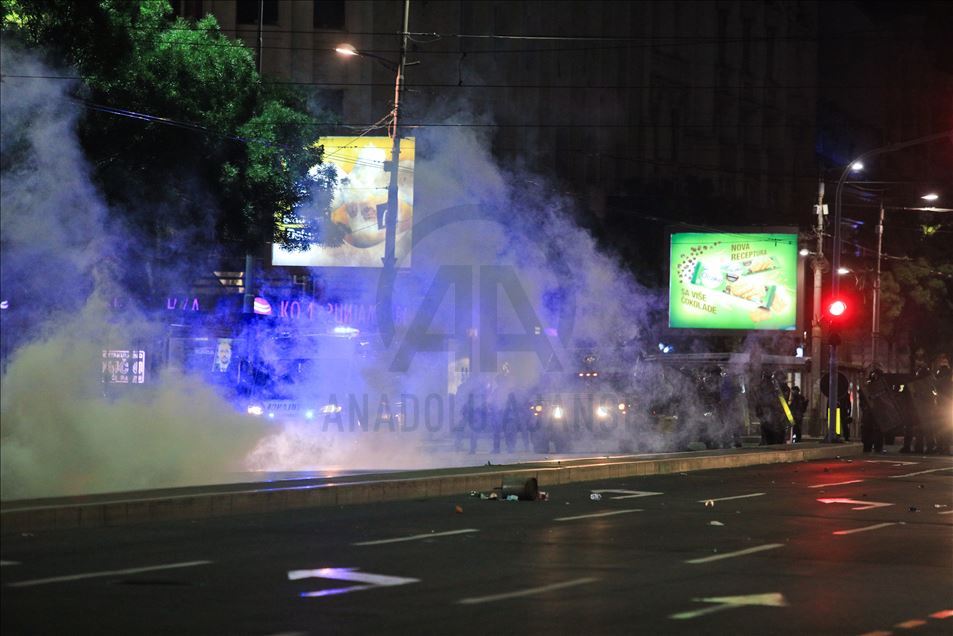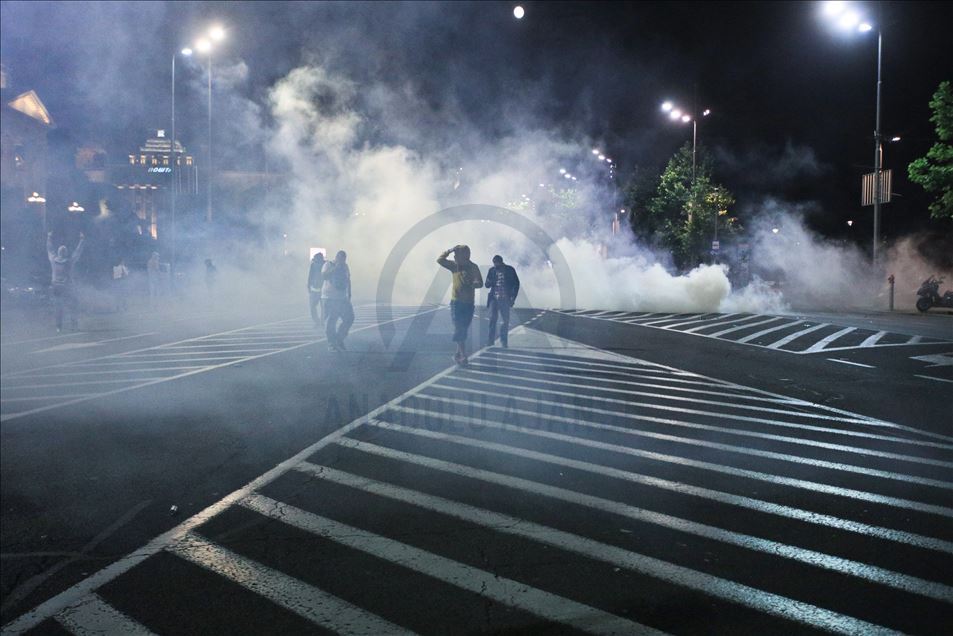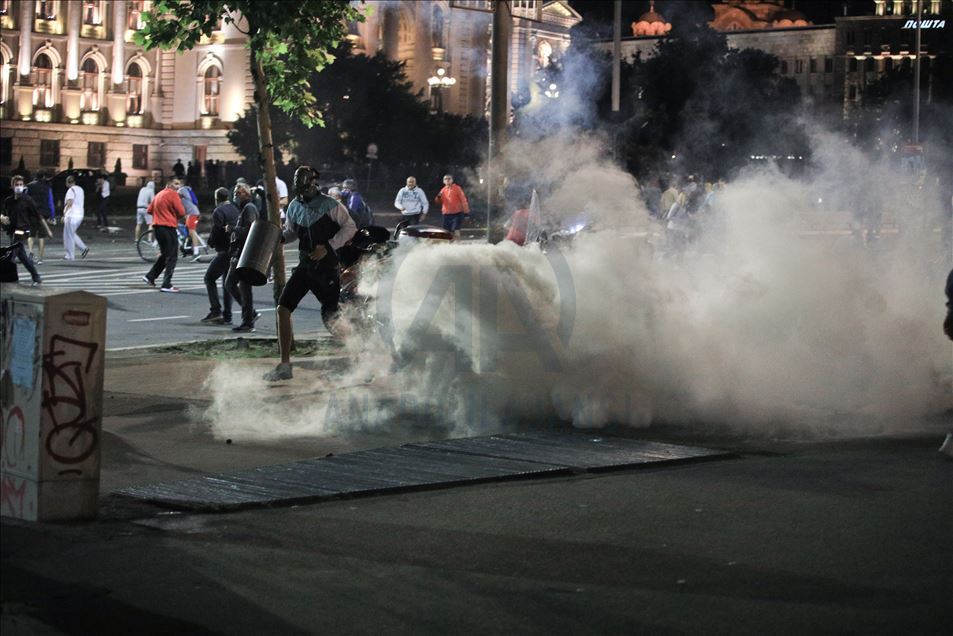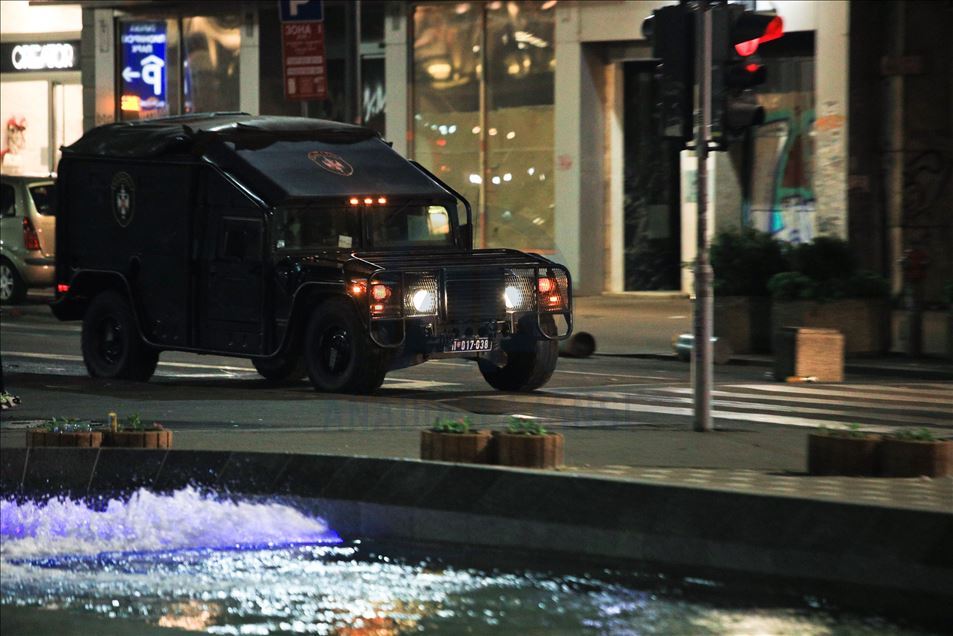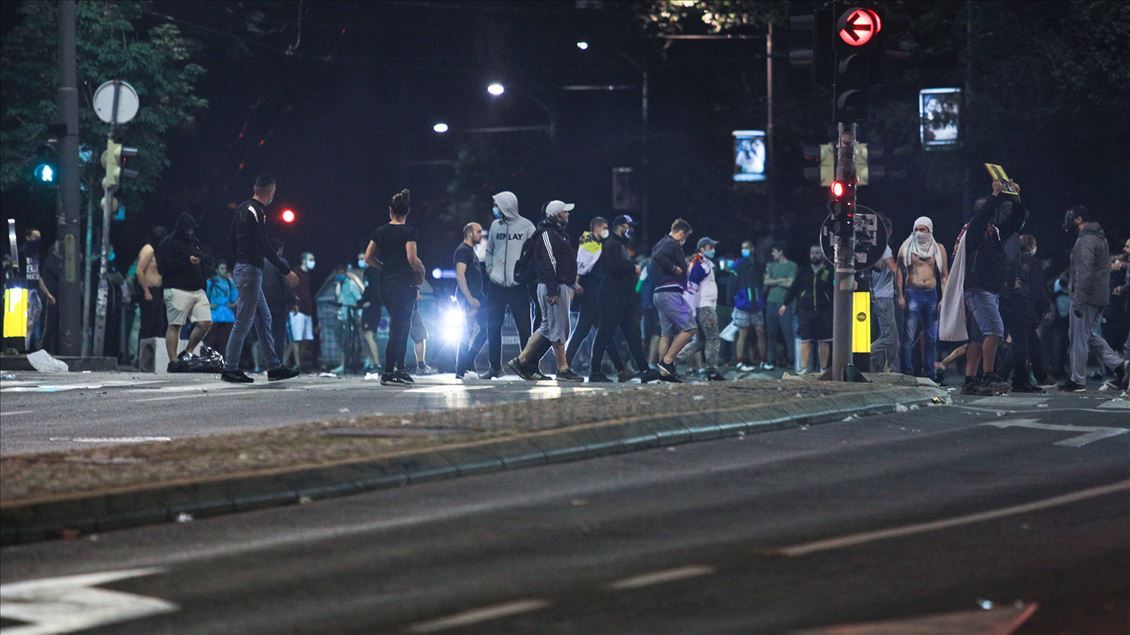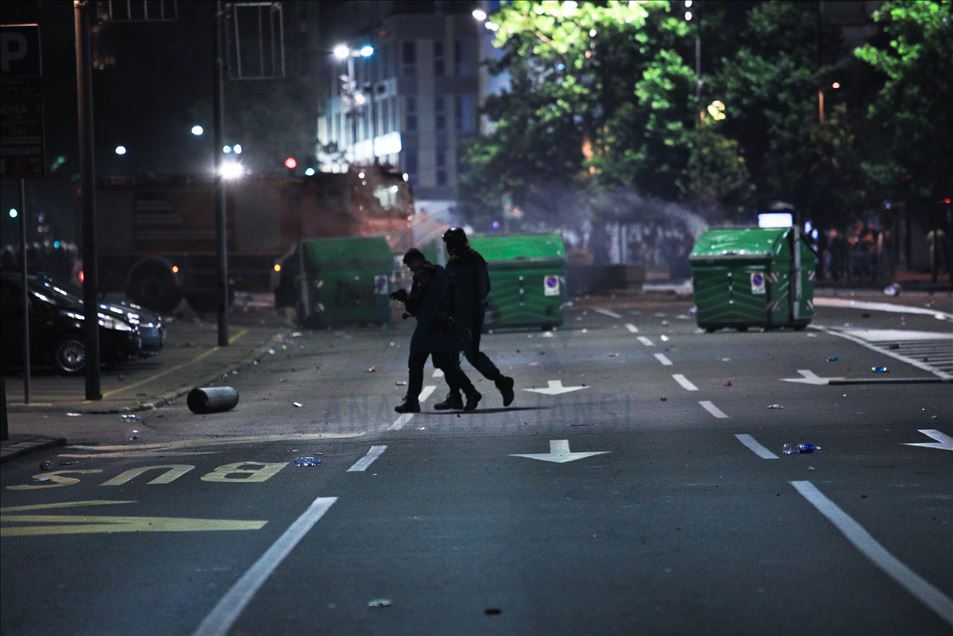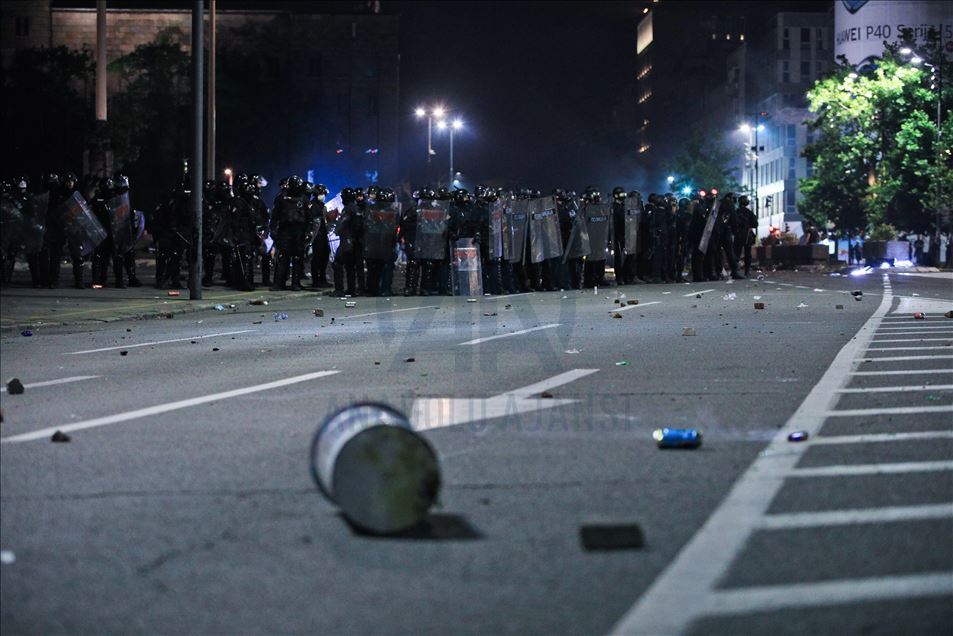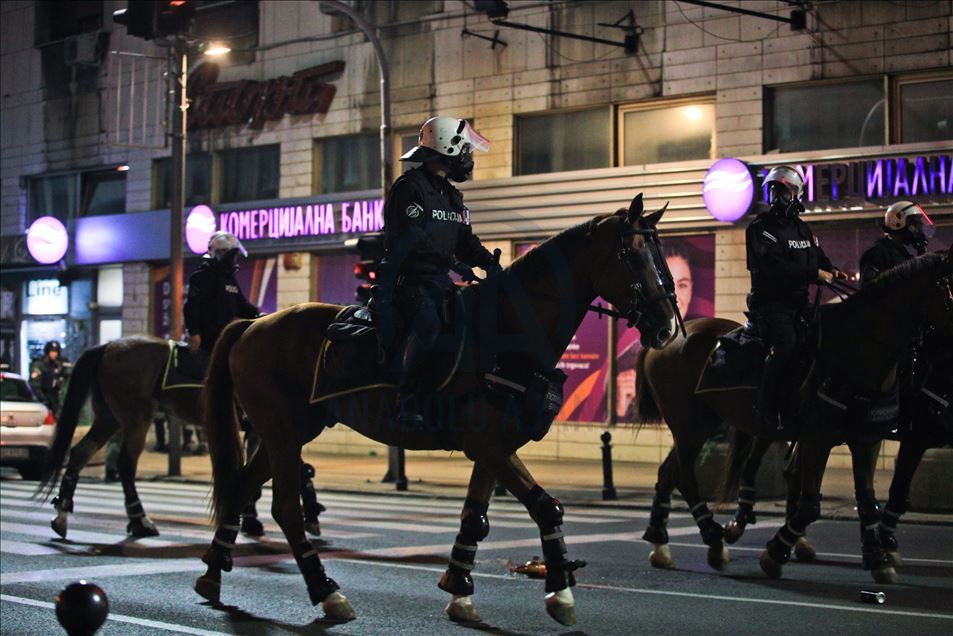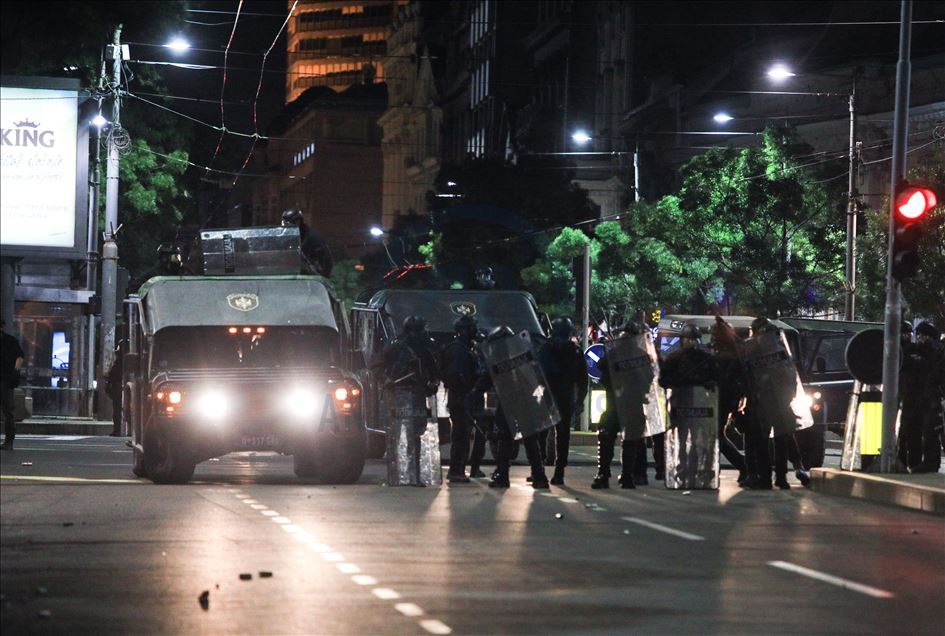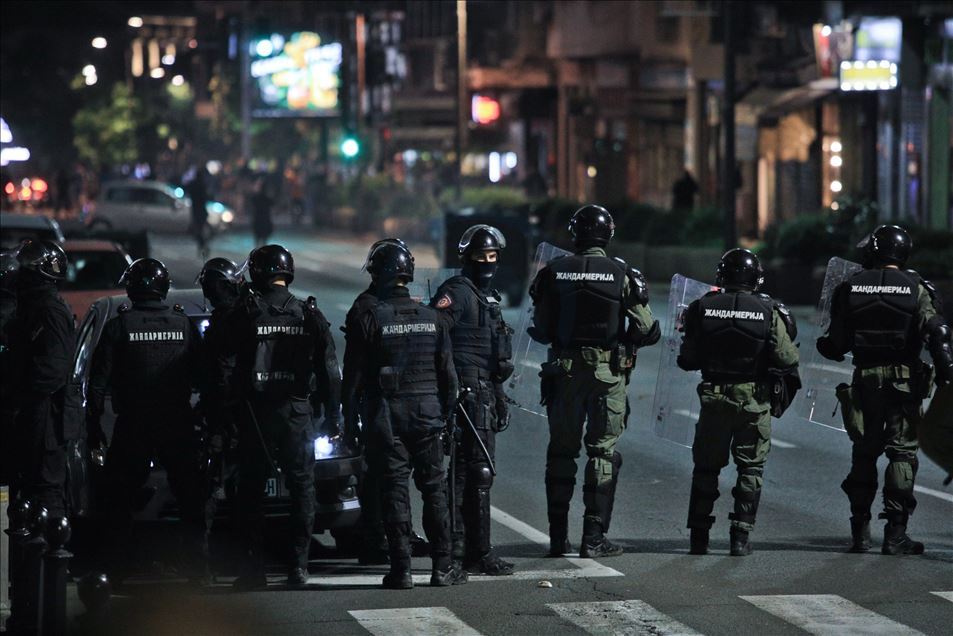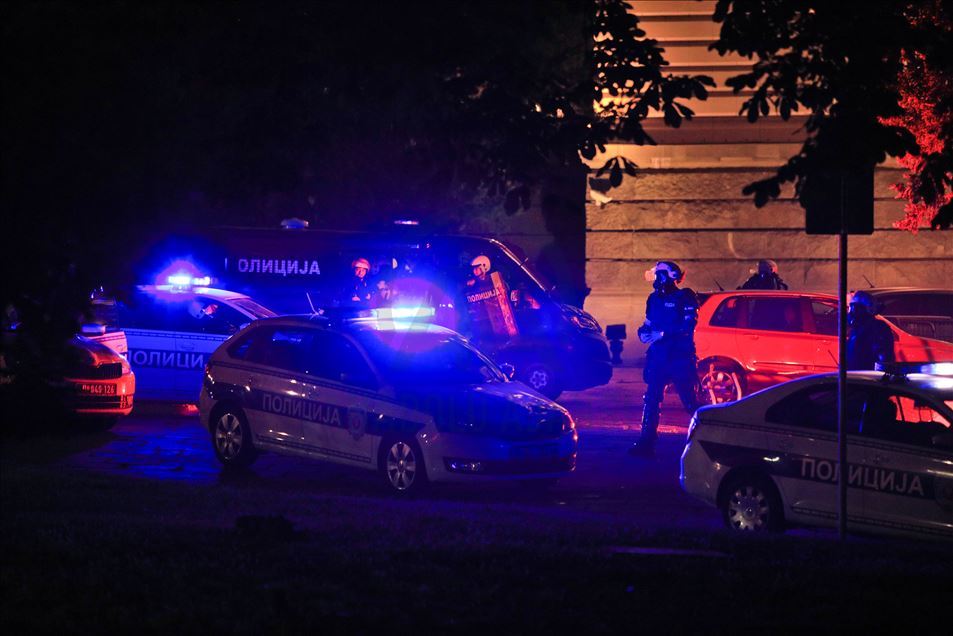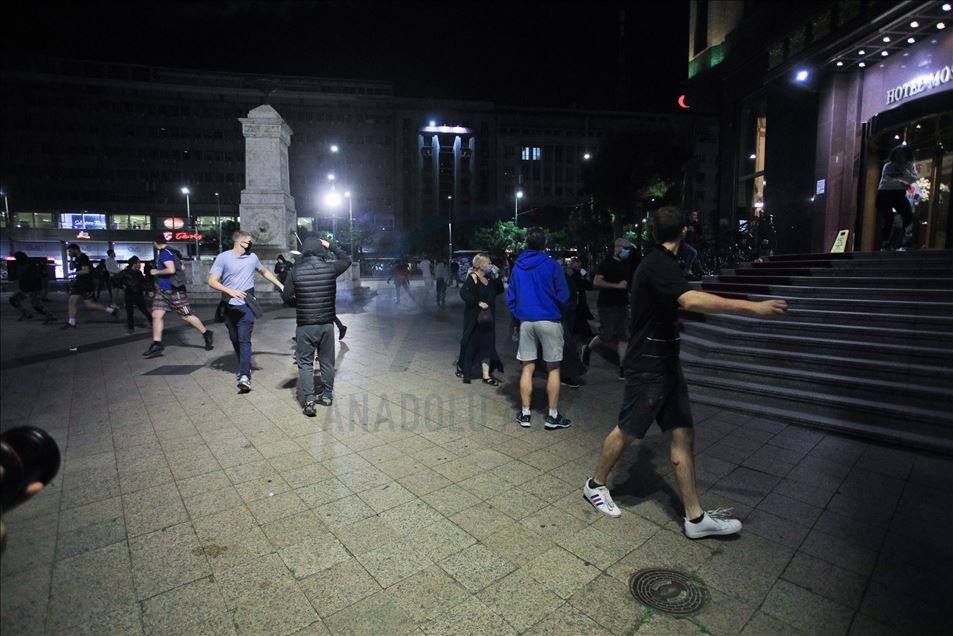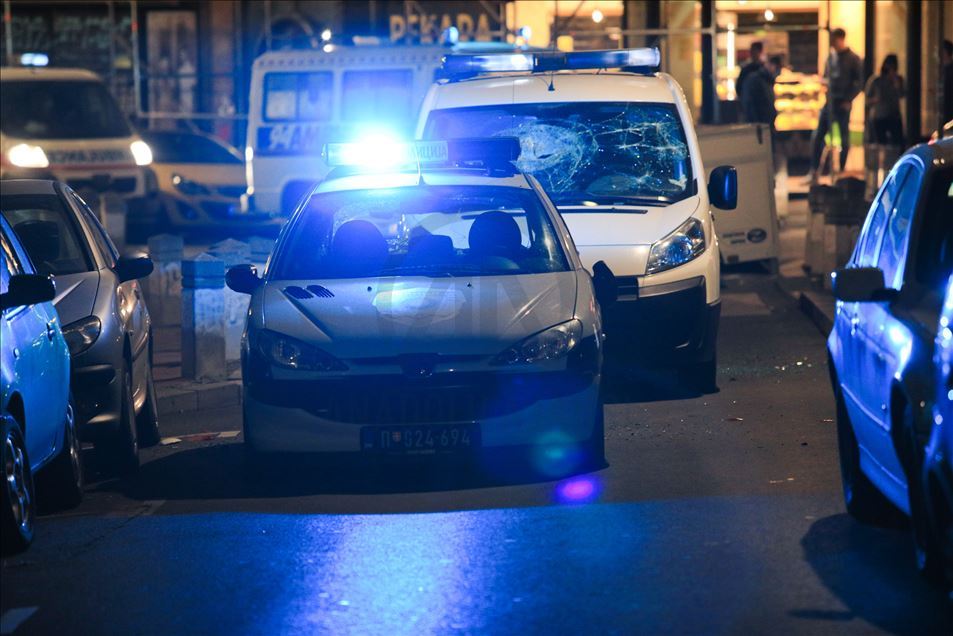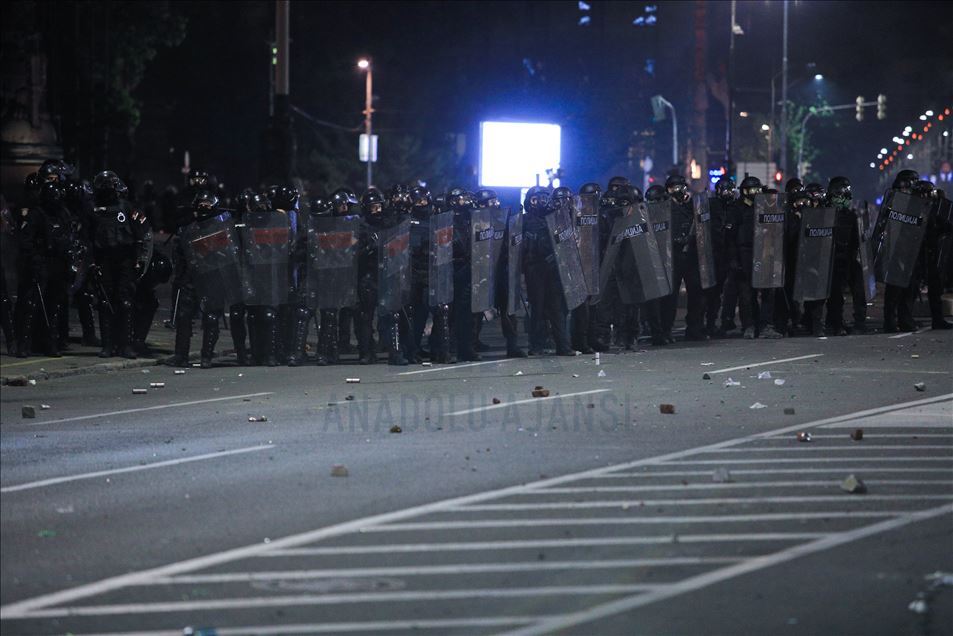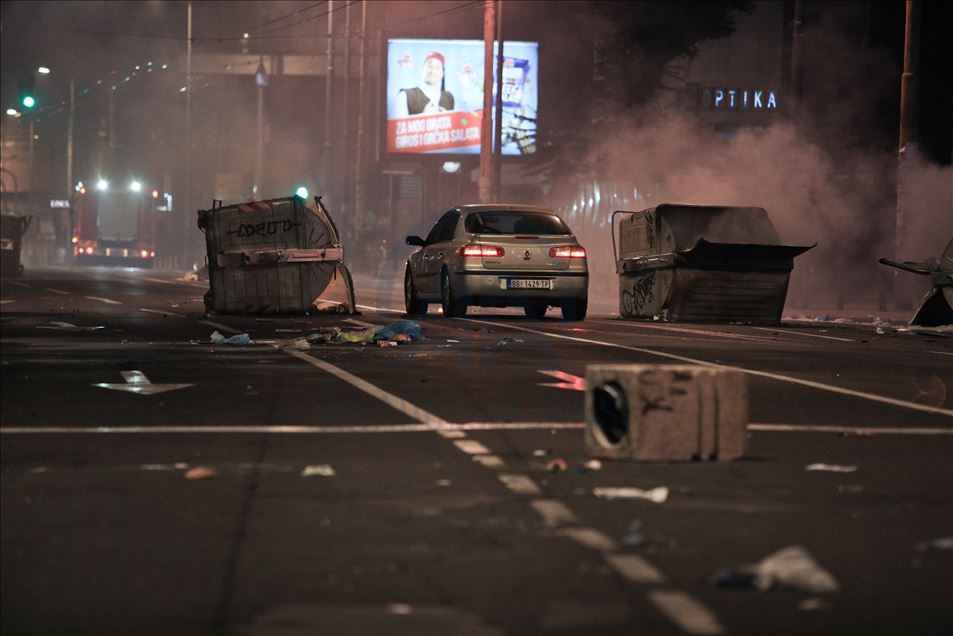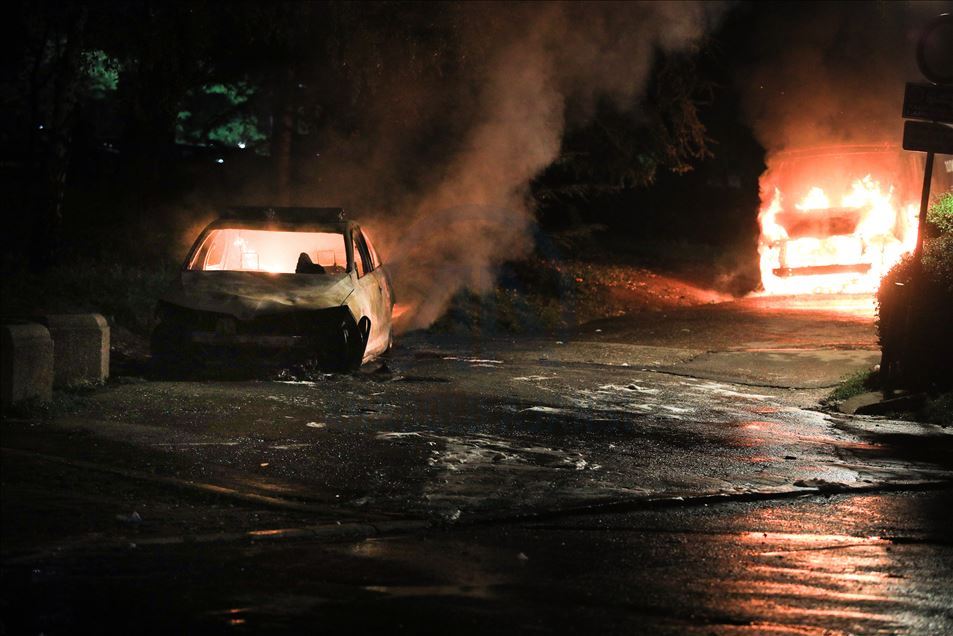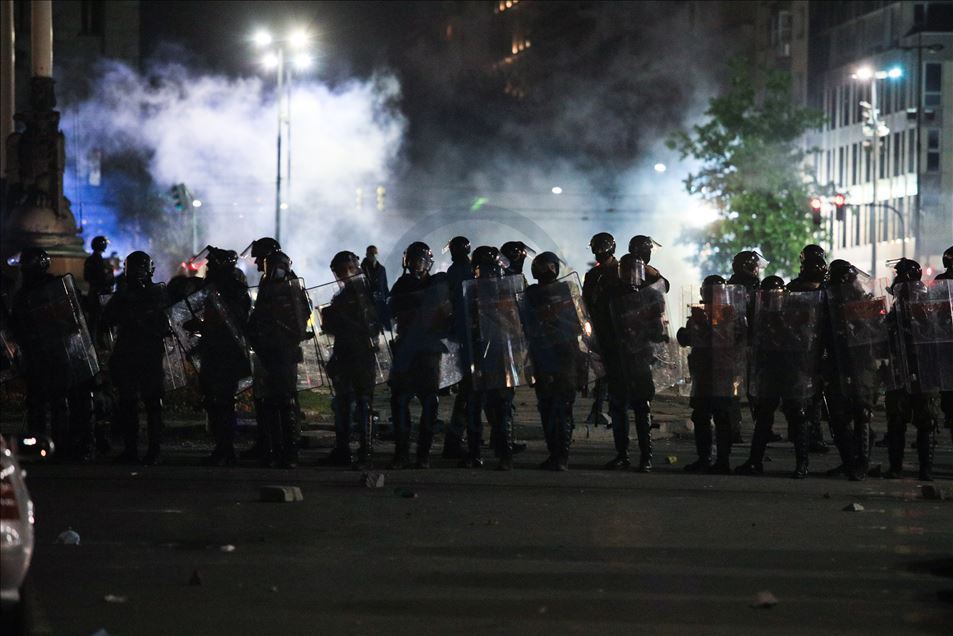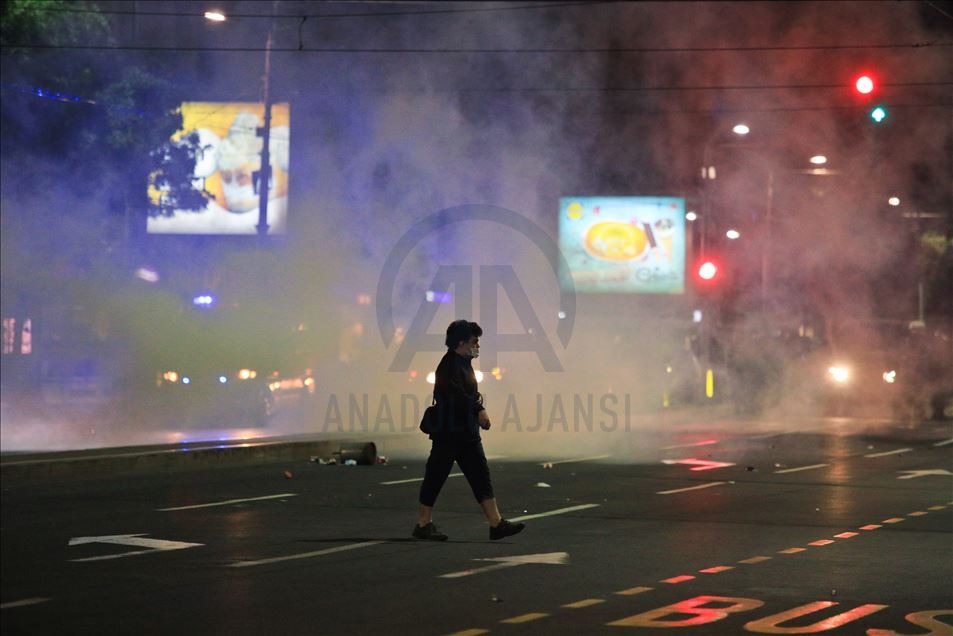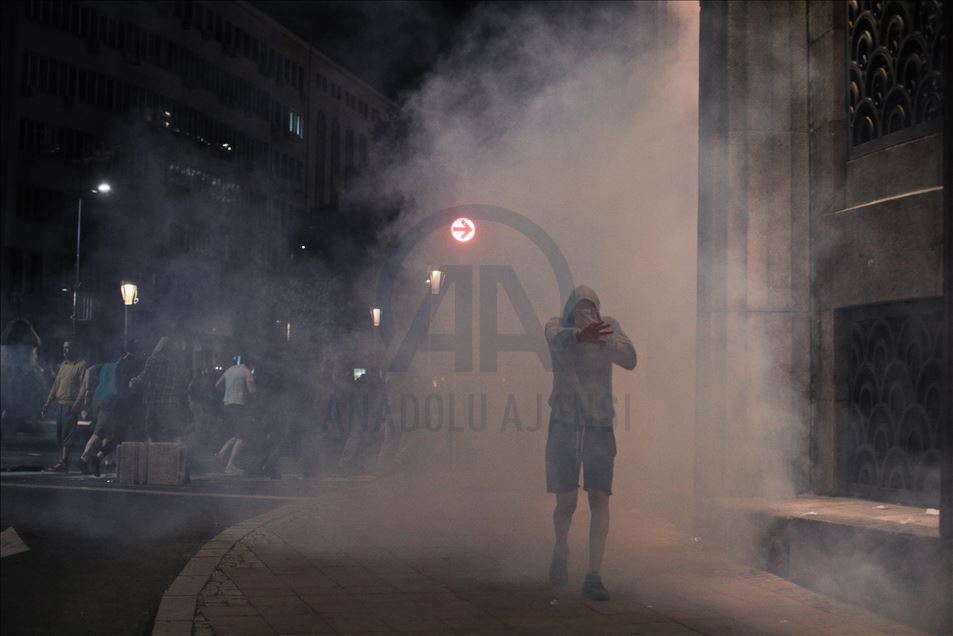Serbia: Thousands continue to protest COVID-19 measures
Demonstrations spread to other major cities including Nis, Kragujevac and Novi Sad
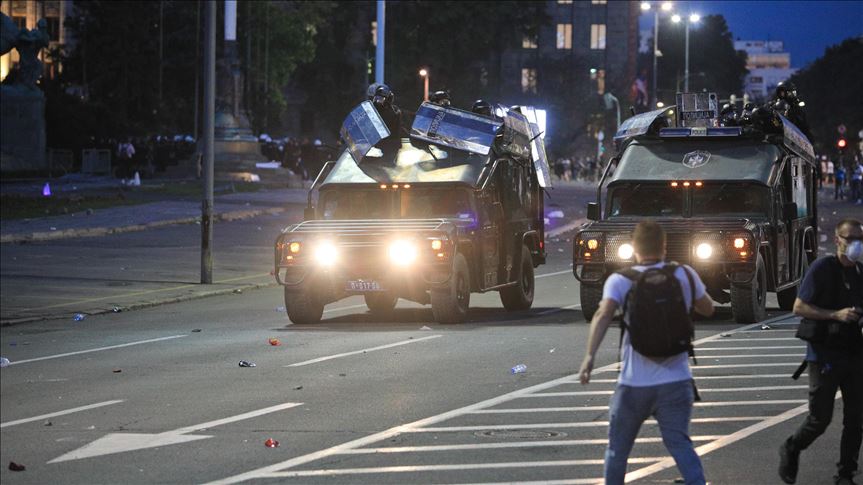 Riot police officers intervene in protesters gathered in front of the Serbian Parliament to protest against the new type of coronavirus (Covid-19) measures announced by Serbian President, Aleksandar Vucic in Belgrade, Serbia, 08 July 2020.
( Milos Miskov - Anadolu Agency )
Riot police officers intervene in protesters gathered in front of the Serbian Parliament to protest against the new type of coronavirus (Covid-19) measures announced by Serbian President, Aleksandar Vucic in Belgrade, Serbia, 08 July 2020.
( Milos Miskov - Anadolu Agency )
BELGRADE, Serbia
Thousands of protesters took to the streets of Serbia’s capital again Wednesday after the government moved to impose new measures to curb a rise in coronavirus cases.
The protests, which began Tuesday evening in Belgrade, spread to other major cities including Nis, Kragujevac and Novi Sad.
The demonstrations erupted after President Aleksandar Vucic announced Tuesday that a weekend curfew would be re-imposed in an effort to combat the pandemic.
Large numbers of people gathered in front of the National Assembly Building in Belgrade.
Protesters clashed with police while attempting to enter the building as gendarmerie forces set up a cordon on the steps in front of its entrance.
Traffic was stopped in that part of the city.
Among those who gathered were some opposition leaders.
Meanwhile, the door of the radio and television building in Novi Sad was broken with stones.
Many police officers were injured during the protests.
Vucic said earlier Wednesday that he would not let anyone destroy peace and stability in Serbia.
He said foreign provocateurs helped escalate the protests into a riot and led to arrests.
"There was a failure on the part of security services because we only later saw that there was an influence not only of the criminal factor but also foreign services," he said, adding that on Tuesday night, “extremists” took over events in an organized way.
He added that the curfew he announced will probably not go into effect.
Interior Minister Nebojsa Stefanovic said that tonight, the violence on the streets of Belgrade and other cities in Serbia is an indicator of the desire to take power by force.
"It is clear that the current situation on the streets of cities can be described as clear violence and an attempt to take power by force, physical confrontation, without the will of the people and participation in the elections," Stefanovic said.
He pointed out that the police had regained control of the areas and did not want to overreact, reacting only when some officers were exposed to attempted lynchings.
Stefanovic said protesters attacked police with various objects.
"They began to intervene when the violence became unbearable and when their lives were in danger," he said.
He pointed out that 10 police officers were injured and that one officer had both legs broken.
"We will bring in anyone who dares to physically endanger any person," Stefanovic said, adding anyone who endangered the police would be held accountable and severely punished.
He noted that the violence by the demonstrators was recorded by many cameras and that they threw tear gas at the police in front of the Serbian Parliament.
Serbia has confirmed 17,076 cases and 341 deaths from the disease, while the number of recoveries totals 13,562, according to data from US-based Johns Hopkins University.

